DMA
Filter by...
-

Commission slams Apple and Meta for breaching the Digital Markets Act, doesn’t stick the landing with fines
The European Commission has shown some teeth with the EU’s digital rulebook by slamming tech giants Apple and Meta with fines, and an order to stop the infringing behaviour. While we commend the strong stance, we're concerned about whether the low fines will actually lead to change of behaviour from the tech giants.
Read more
-
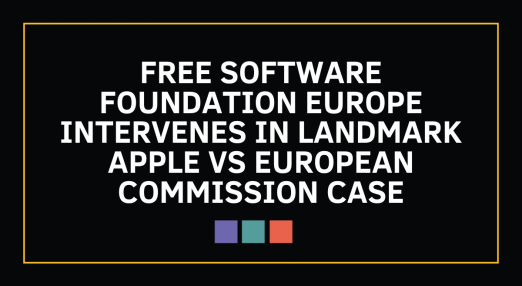
Free Software Foundation Europe intervenes in landmark Apple vs European Commission case
EDRi member Free Software Foundation Europe (FSFE) is taking a stand against Apple in a landmark case at the Court of Justice of the European Union, where the tech giant is challenging EU digital law. This intervention could help users and developers of Free Software.
Read more
-
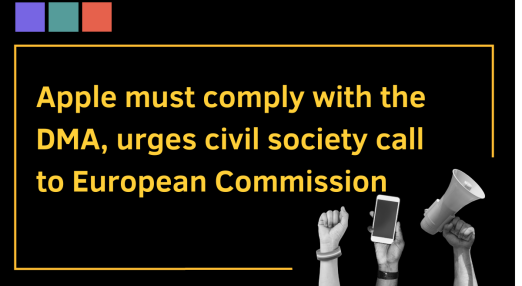
Apple must comply with the DMA, urges civil society call to European Commission
Civil society organisations and stakeholders have submitted an analysis to the European Commission about Apple’s attempts to circumvent the Digital Markets Act’s goals of allowing people freedom of choice on their own devices.
Read more
-

#PrivacyCamp24: Event summary
On January 24, 2024, we brought together policymakers, activists, human rights defenders, and academics from all over Europe for Privacy Camp 2024. We came together to explore the theme ‘Revealing, Rethinking, and Changing Systems’.
Read more
-
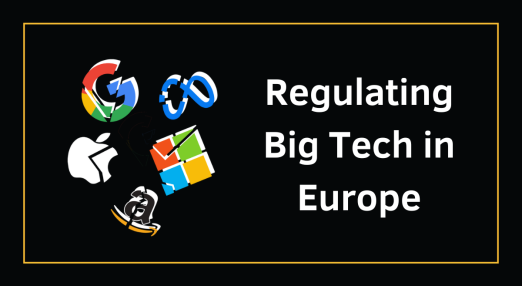
Regulating Big Tech in Europe with the Digital Services Act & Digital Markets Act
The EU’s latest flagship laws Digital Services Act (DSA) and Digital Markets Act (DMA) are in force, the regulatory structure is (slowly) being set up, the first Big Tech companies are suing in court, and the European Commission throws a party (yes, really). But what does this mean for people in their role as platform users and what’s coming next?
Read more
-
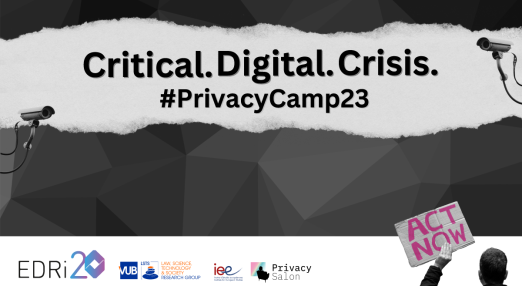
#PrivacyCamp23: Event summary
In January 2023, EDRi gathered policymakers, activists, human rights defenders, climate and social justice advocates and academics in Brussels to discuss the criticality of our digital worlds. We welcomed 200+ participants in person and enjoyed an online audience of 600+ people engaging with the event livestream videos. If you missed the event or want a reminder of what happened in a session, find the session summaries and video recordings below.
Read more
-

The Digital Markets Act promises to free people from digital walled gardens
Last night, 24 March, the European Union made a great step forward to better protecting our rights online as it approved the political trilogue compromise for the Digital Markets Act (DMA). This decision promises to challenge the strongly centralised environment of Big Tech platforms exerting too much power over our rights and over the flow of information in society. Tech companies like Facebook, Google, Amazon and Apple will have to start following strict rules that ensure free and fair competition in the digital markets.
Read more
-

Booklet: Informing the disinfo debate
Today, 20 December 2021, EDRi, Access Now and Civil Liberties Union for Europe publish a joint report as a continuation of its 2018 predecessor, Informing the “Disinformation” Debate. The main outcome of this report is a set of policy recommendations addressed to the EU co-legislators focusing on: how to effectively mitigate fundamental rights risks that result from the manipulative methods deployed by large online platforms that exploit people’s vulnerabilities and their sensitive data; and how to combat disinformation in a manner that is fully compliant with fundamental rights standards.
Read more
-

DMA: European Parliament takes first steps towards limiting gatekeeper power and providing real choices for people
Today, the European Parliament has approved its position on the Digital Markets Act (DMA). While unfortunately, it scales down the DMA scope by limiting who will be considered a gatekeeper, the Parliament position adds a number of notable improvements from a digital rights perspective that help challenge digital gatekeepers’ overwhelming power.
Read more
-
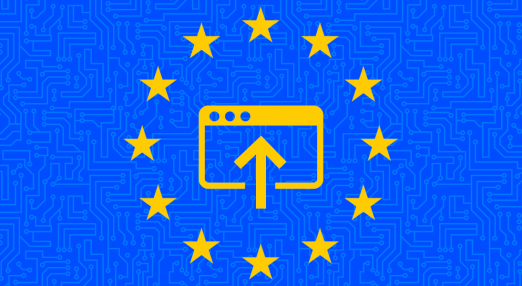
Digital Services Act: EU Parliament’s key committee rejects a filternet but concerns remain
The European Union's Digital Services Act (DSA) is a big deal. It's the most significant reform of Europe’s internet platform legislation in twenty years and the EU Commission has proposed multiple new rules to address the challenges brought by the increased use of services online. EU members of Parliament (MEPs) showed that they listened to civil society voices: Even though the key committee on internal market affairs (IMCO) did not follow the footsteps of the ambitious DSA reports from last year, MEPs took a stance for the protection of fundamental rights.
Read more
-
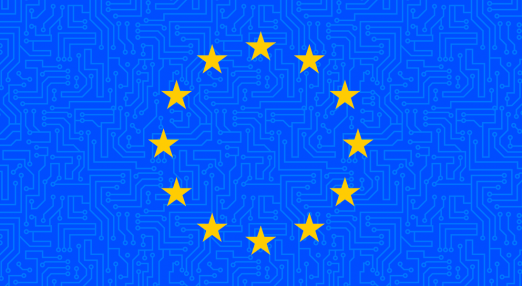
EU Parliament Takes First Step Towards a Fair and Interoperable Market
The EU’s Proposal for a Digital Market Act (DMA) is an attempt to create a fairer and more competitive market for online platforms in the EU. It sets out a standard for very large platforms, which act as gatekeepers between business users and end users. As gatekeepers “have substantial control over the access to, and are entrenched in digital markets,” the DMA sets out a list of dos and don'ts with which platforms will have to comply.
Read more
-

Two steps forward, one step back: DMA must do more to free people from digital walled gardens
The European Parliament Committee on the Internal Market and Consumer Protection (IMCO) report on the Digital Markets Act (DMA) makes improvements to the DMA but also includes serious loopholes that need to be fixed in trilogue
Read more
